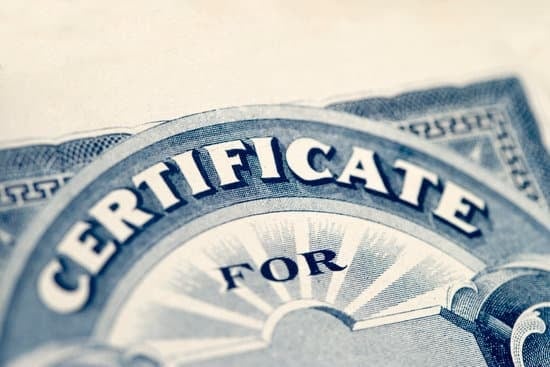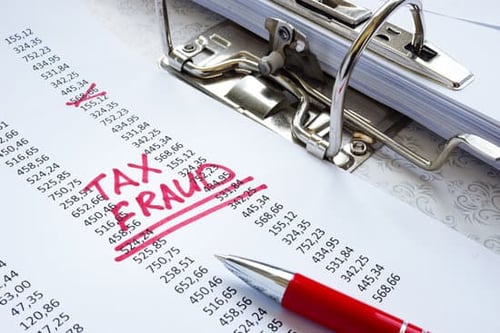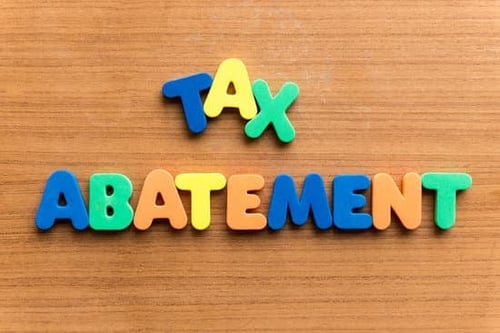Powell Tax Law Blog

What is a Tax Certificate?
A tax certificate is an official document that confirms the status of a person or business regarding their tax obligations. It serves as proof that the individual or entity has either paid their taxes in full or has made arrangements to fulfill their tax liabilities.
Tax certificates are typically issued by tax authorities or government agencies responsible for collecting taxes at various levels, such as federal, state, or local governments. The specific authority that issues tax certificates can vary depending on the jurisdiction and the type of taxes involved.
In the United States, tax certificates can differ from state to state because tax regulations and administrative procedures vary across jurisdictions. Each state may have its own tax authority responsible for issuing tax certificates.
How Tax Certificates Work in Texas
A tax certificate in Texas is an official document that certifies the current state of taxes. It includes the amount of delinquent taxes, penalties, interests, and any known costs and expenses due if the taxes are delinquent.
“Buyers and sellers use tax certificates to show that there are no taxes due, and property owners may be required to provide a tax certificate when applying for a permit. Anyone can request a tax certificate. The fee is $10, and certificates are ready in three to five business days,” explains the Travis County Tax Office.
Texas administrative code says that all offices collecting ad valorem taxes shall prepare and issue tax certificates, upon the request of any person, and provide the following information:
- Name and address of the collecting office and the name of the taxing units for which that office collects on the specified property.
- Name and address of the property owner.
- Description of the property for which the tax certificate is issued.
- Account number of the property for which the tax certificate is issued.
- The year in which delinquent taxes, penalties, and interest are due.
- If the specified property has received or is receiving special valuation based on its use, a statement that additional rollback taxes may become due as provided by the tax code.
- The amount of delinquent taxes, penalties, interest, and any known costs and expenses as provided by the tax code, due for each taxing unit.
- The date of the tax certificate.
- The signature of the authorized office of the collecting office.
“The tax certificate shall include an affirmation by the authorized officer of the collecting office that a careful check of the tax records of the office has been made on the specified property and the tax certificate indicates the amount of delinquent taxes,” says the State of Texas.
While Texas counties can conduct tax foreclosure sales -- foreclosure is a legal action the county takes as its final effort to collect delinquent property taxes – they do not sell tax lien certificates to investors.
The Risky Business of Tax Lien Certificate Sales
According to the National Tax Lien Association, a nonprofit that represents governments, institutional tax line investors, and servicers, there are currently 29 states plus Washington, D.C. that allow for the transfer or assigning of delinquent real estate tax liens to the private sector.
“A tax lien certificate is created when a property owner has failed to pay their taxes and the local government issues a tax lien. The certificate shows the taxes that are owed along with any interest and penalties. Tax lien certificates are typically auctioned off to investors looking to profit,” explains Bankrate.com. “To recover the delinquent tax dollars, municipalities can then sell the tax lien certificate to private investors, who take care of the tax bill in exchange for the right to collect that money, plus interest, from the property owners when they eventually pay back their balance.”
The “winning bidder” of a tax lien certificate must pay the entire tax bill – including delinquent debt, interest, and penalties – and then the investor waits for the homeowner to pay back the balance owed, or the investor can assume ownership of the property after it has gone through the foreclosure process.
How a Tax Certificate is Different from a Tax Lien
In Texas, taxpayers who fall behind on their property tax accounts will have a tax lien placed on their property.
“Taxpayers with delinquent property tax accounts will receive a Notice of State Tax Lien, informing the property owner that a lien has been placed on their property. The lien remains in effect until the past due amounts are paid, or the parties otherwise come to an agreement or settlement,” says the Texas Real Estate Source.
A tax certificate and a tax lien on a property, although related, are not the same thing. Here is the difference:
- A tax certificate is a document issued by a tax authority to verify that a person or business has fulfilled their tax obligations. It serves as proof of compliance with tax laws and is often requested in various situations, as mentioned earlier.
- A tax lien is a legal claim by the government or tax authority against a property when the property owner has unpaid tax debts. The tax lien is a security interest that gives the government the right to claim the property or its proceeds if the tax debts are not resolved. The tax lien is typically filed in public records, attaching to the property and affecting its title.
The issuance of a tax certificate and the existence of a tax lien are related because a tax certificate is often issued when tax liens are satisfied or arrangements are made to resolve the tax debts. In some cases, a tax certificate may be required to remove a tax lien from a property's title.
Reasons Why You Might Need a Tax Certificate
There can be several reasons why a person or business might request a tax certificate:
- Compliance Verification: Individuals or businesses may need a tax certificate to demonstrate their compliance with tax laws when applying for certain licenses, permits, or contracts. It helps confirm that they have met their tax obligations and are in good standing with the tax authorities. Construction or demolition permits, for example, may require tax certificates.
- Business Transactions: During business transactions such as mergers, acquisitions, or sales of assets, tax certificates may be requested to assess the tax status of the entities involved. It provides assurance to the parties involved that there are no outstanding tax liabilities or potential tax issues.
- Mortgage or Loan Applications: Lenders may require tax certificates as part of the due diligence process for mortgage or loan applications. It helps them evaluate the financial stability of the borrower and assess any potential risks related to unpaid taxes.
- Legal Proceedings: In certain legal proceedings, tax certificates may be necessary to establish the financial standing of individuals or businesses involved. This can include divorce proceedings, bankruptcy cases, or other legal disputes where tax obligations are relevant.
It's important to note that the specific terminology and procedures related to tax certificates can vary across jurisdictions, so it's advisable to consult the relevant tax authority or seek professional advice to understand the specific requirements in a particular state or country.
What Happens if a Tax Certificate is Erroneous or Fraudulent?
For starters, a tax certificate issued through fraud or collusion is void.
There could be cases, however, where a tax certificate erroneously indicates that no delinquent taxes, penalties, or interest are due to a taxing unit on the property or that fails to include property because of its omission from an appraisal roll.
In this case, pursuant to Tax Code Section 31.08, the taxing unit’s tax lien on the property is extinguished and the purchaser of the property Is absolved of liability to the taxing unit for delinquent taxes, penalties, or interest on the property or for taxes based on omitted property.
The person who was liable for the tax for the year the tax was imposed or the property was omitted remains personally liable for the tax and for any penalties or interest.







